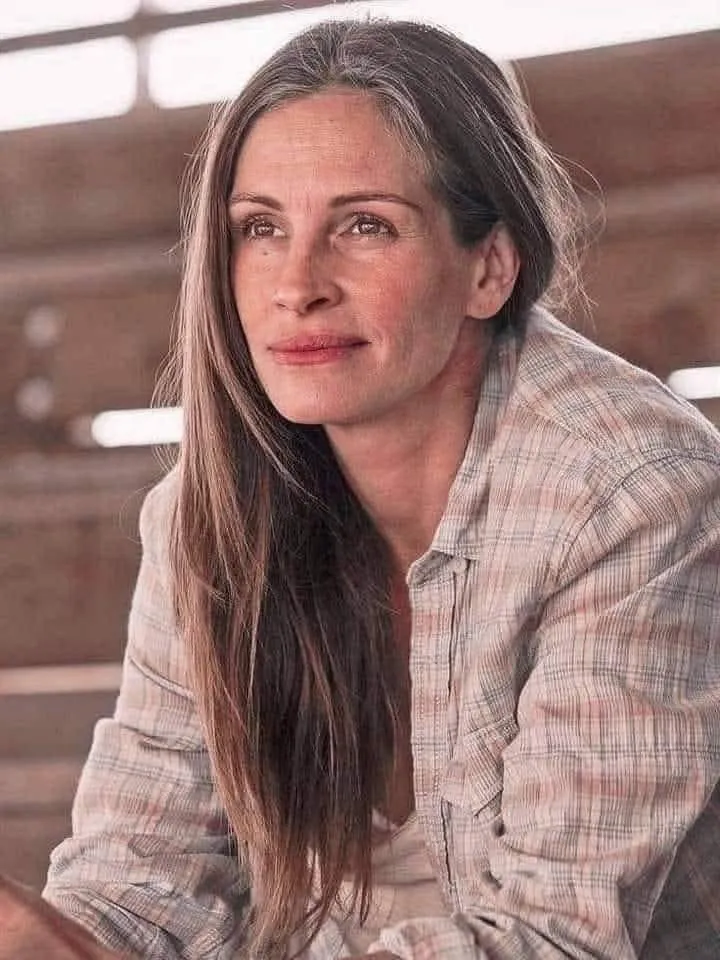The Stranger Who Gave Away a Kidney—and Saved a Father’s Life 932

On a summer afternoon, a father of five walked through Disney World with his children. To most visitors, it was a day of joy, laughter, and memories. But for Robert Leibowitz, every step he took carried the weight of survival. Diagnosed with chronic kidney failure, he had been tethered to dialysis machines for three exhausting years. Yet instead of despair, he carried hope—in the form of a white T-shirt with bold black letters asking for a kidney donor.
The shirt was simple but direct: a plea for life that he wore on his chest, hoping that someone, somewhere, might respond. It was not a billboard, nor a headline in the paper. It was one man’s quiet fight to stay alive for his children, expressed in cotton and ink. That small act of courage would soon ripple across the digital world in ways he could never have imagined.
Among the crowds at Disney was a woman named Rocio Sandoval. She noticed Robert’s shirt, paused, and felt compelled to act. She snapped a photo, posted it on Facebook, and within hours, the image began to travel. The internet, often accused of spreading negativity, became the unlikely vehicle of hope. The photo was shared more than 90,000 times, crossing screens, timelines, and communities far beyond the park gates.
In Indiana, a veterinarian named Jess Rutledge scrolled past the viral post. It stopped her in her tracks. The story wasn’t just about illness—it was about a father’s love for his children and a stranger’s chance to help. Moved by the message, Jess told her friend, a man named Richie Sully, about Robert’s urgent need.
As fate would have it, Richie had just received the results of a blood test the day before. He shared the same blood type that Robert required. It was almost uncanny, as if the universe had orchestrated the timing. Instead of hesitating, Richie picked up the phone and called Robert. What followed was not just a conversation but the beginning of a life-saving bond.
Tests were arranged—rigorous checks not only of physical health but also of mental readiness. Organ donation is never a small decision, yet Richie approached it with calm conviction. He traveled to New York, sat across from the man whose life hung in the balance, and looked into the eyes of a father who desperately wanted to see his children grow up.
For Robert, the moment was surreal. A stranger he had never met was willing to endure surgery, pain, and risk to give him the most precious gift of all: time. After years of watching his health decline, tethered to hospital machines several times a week, he finally saw a door opening toward life again.
The transplant was scheduled for January 18. To Robert, it was more than a date—it was a promise. The possibility of waking up without the crushing weight of dialysis, the chance to eat dinner with his children without worrying about schedules, the dream of playing catch or attending graduations without exhaustion.
Yet Richie’s reaction was strikingly humble. Asked why he was willing to make such a sacrifice, he shrugged. “A man needs a kidney to live. I have two. I can live with one. It’s not a big deal,” he told ABC News. His words carried the simplicity of truth: generosity doesn’t always come from extraordinary heroes—it comes from ordinary people choosing to do something extraordinary.
Richie’s actions spoke louder than words. He boarded a bus for a 15-hour ride to New York City, paying his own way, sleeping in uncomfortable seats, driven by nothing but the desire to help. He committed to staying in the city for two weeks after the surgery, ensuring that Robert would not face recovery alone.
Meanwhile, supporters from around the country began contributing to a fundraising account. They wanted to ease the costs for both men, to ensure that neither medical bills nor travel expenses would overshadow the beauty of the gift being given. Donations poured in, proving that compassion, once sparked, can ignite in countless hearts.
For Robert, the journey was filled with gratitude. He called Richie’s decision nothing short of a miracle. He described his children’s excitement at the idea that their father might no longer be chained to a dialysis machine. He admitted that for years, he had wondered if he would live long enough to walk his daughters down the aisle or watch his sons become men. Suddenly, those dreams felt possible again.
For Richie, however, the decision remained grounded in humility. He rejected the notion of being called a hero. To him, it was simple math: one life in danger, one life with something to give. He had two kidneys, and someone else had none. Why not share?
The story didn’t just save Robert’s life; it started a conversation about organ donation nationwide. Hospitals reported a surge in inquiries about becoming donors. People were moved not just by Robert’s plea, but by Richie’s willingness to answer it without fanfare. In their eyes, the transplant represented more than medicine—it symbolized humanity at its purest.
Robert later expressed a wish beyond his own recovery. He dreamed of reuniting with everyone who had played a role in the miracle: Rocio, who snapped the photo; Jess, who shared the story; and Richie, who gave his kidney. He pictured them together, not in a hospital, but back at Disney—the place where hope had first taken root. To him, it would be the perfect full circle: celebrating life where desperation once stood.
As the surgery date drew near, Robert’s heart swelled with anticipation. He described it as standing on the edge of two worlds: one where illness dictated every moment, and another where freedom awaited. The bridge between those worlds was a stranger’s gift.
Stories like Robert’s remind us that miracles are often born not of magic, but of people. It took four strangers, each making one choice—one photo, one share, one conversation, one decision—to rewrite the fate of a father and his five children. Together, they created a chain of kindness that no illness could break.
And perhaps that is the most powerful lesson. Miracles are not always sudden bursts of light; sometimes they are built piece by piece, through courage, compassion, and trust. For Robert and Richie, the miracle was not only the kidney itself, but the proof that even in a fractured world, strangers can become saviors, and hope can find a way back.
In the end, Robert gained more than a kidney. He gained more years with his children, more mornings to wake without the shadow of dialysis, and more proof that kindness can arrive from the most unexpected places. And Richie gained the quiet satisfaction of knowing that his life had made another possible—a legacy written not in fame, but in love.
This is the story of how one shirt, one photograph, and one stranger’s choice turned despair into survival. It is a reminder that sometimes, the greatest miracles come not from asking “why me?” but from one person saying, “why not me?”
Julia Roberts on Aging Gracefully: Beauty Beyond Hollywood’s Standards 549


Hollywood is known for its obsession with youth, glamour, and perfection. But Julia Roberts, the beloved actress whose career spans decades, recently shared a perspective that challenges the industry’s narrow definitions of beauty. At a time when many contemporaries chase cosmetic treatments, Roberts embraces aging with dignity, humor, and serenity.
“I am aging with dignity, humor, and serenity,” she stated in a candid interview. “I don’t resort to lifting or Botox, and I know by Hollywood standards I’m risking my career. If they don’t want to give me a role because I look old, it means I produce the project and I choose who I want.” For Roberts, the focus is not on competing with the artificial expectations of the industry, but on authenticity — both in her work and in her life.
Roberts also reflects on what truly matters beyond the cameras and lights. “I know a lot of moms struggling to make ends meet: those are the serious problems. Those are the women I admire, who are beautiful and good even when everything is hard.” In her view, real courage and beauty are measured by resilience, compassion, and the ability to face life’s challenges, not by appearances or cosmetic enhancements.
Family and personal well-being hold a central place in Roberts’ life. “Honestly, I have other fears,” she admitted. “I fear for my children, that I cannot protect them from anyone who wants to take advantage of them. It’s more important for me to be well and make my family live well.” Her priorities highlight a perspective that many in Hollywood rarely express: the importance of nurturing relationships and cultivating love and safety over fame or superficial perfection.
For Roberts, the small moments at home outweigh the glamour of the set. “I’m blessed and I appreciate all that I have! I’m thankful for my husband and kids every day. For this reason, for me the most important moments of the day are never the ones I spend on set, but the ones I have at breakfast because we talk about everything… it’s a magical moment.” The actress finds fulfillment in these shared moments, emphasizing that genuine human connection is more valuable than any red carpet appearance.
Her philosophy extends beyond family to a deeper, almost spiritual understanding of life. “How beautiful it is to be planted in the Earth and live it to the fullest without the frivolity of marketing,” she said. In an industry that often equates value with youth or physical perfection, Roberts’ words are a powerful reminder that worth is rooted in character, choices, and the love we give and receive.
Roberts’ approach to aging challenges society’s obsession with appearances. She reminds us that confidence and self-worth are not defined by cosmetic standards, but by how we navigate life with integrity, love, and joy. “We are valuable because of who we are, not how we look,” she said, underscoring a message that resonates far beyond Hollywood.
Her reflections offer inspiration, particularly to women who feel pressured by societal expectations. By embracing her natural self and prioritizing family, well-being, and authenticity, Julia Roberts presents a model of grace that is rare in an industry fixated on the superficial. It is a reminder that real beauty is measured not in the reflection of a mirror, but in the depth of our hearts, the bonds we nurture, and the lives we touch.
In a world that celebrates youth and perfection, Julia Roberts proves that aging can be a beautiful journey when it is embraced with humility, laughter, and gratitude. Her story encourages us all to look beyond the surface and cherish what truly matters: love, family, and living a life full of meaning and authenticity.





